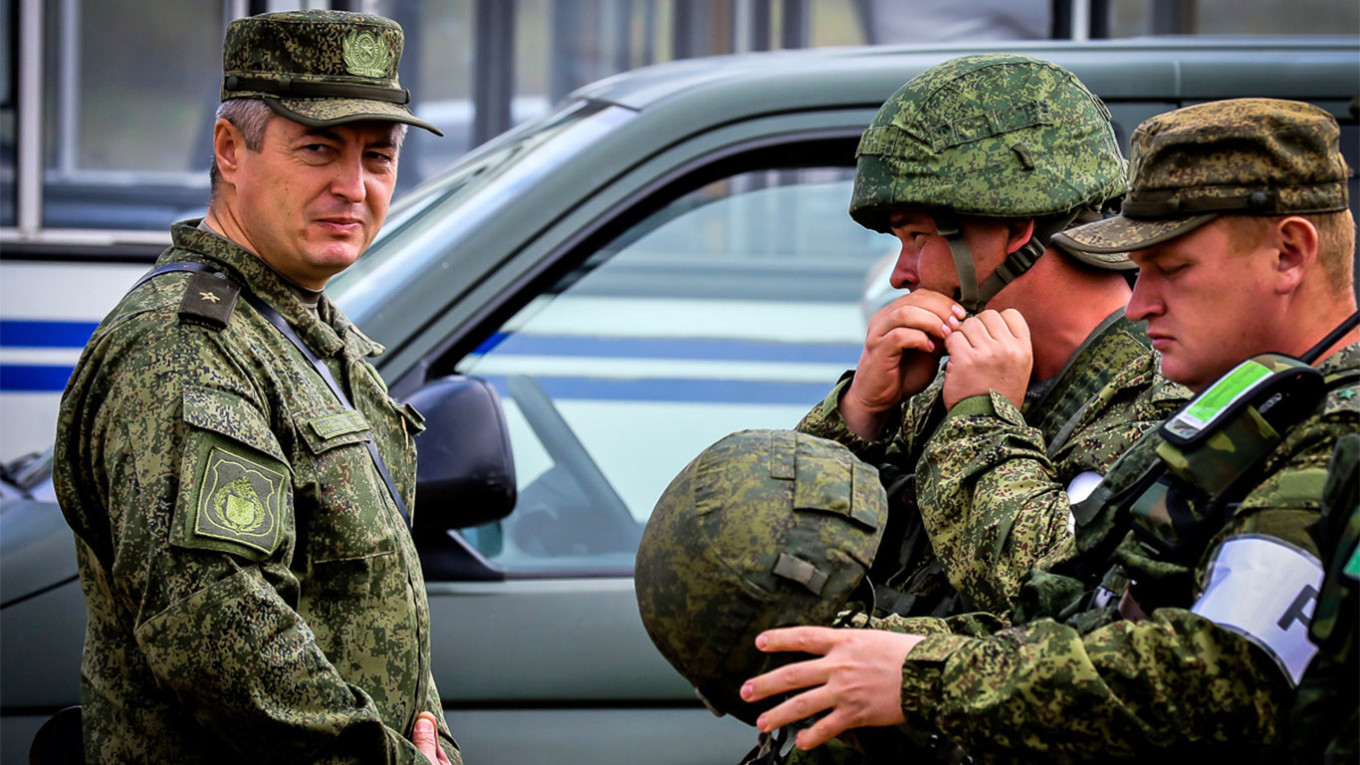
Major General Roman Kutuzov was reportedly leading an operation around the village of Mykolaiv on Sunday as Ukrainian artillery slammed into Russian positions across eastern Ukraine’s Donbas region.
Hours later, he was reported dead by Russian state television reporter Alexander Sladkov in a Telegram post that hailed the general’s bravery.
“The general led the soldiers into attack, as if there were not enough colonels,” Sladkov wrote.
Though Kutuzov’s death remains unconfirmed by Moscow, news of his death deals a further blow to Russia’s Armed Forces, which has been plagued by disproportionately high losses of senior commanders since invading Ukraine in late February, analysts told The Moscow Times.
After regrouping their forces in eastern Ukraine in early April, Russian forces have concentrated the bulk of their troops in the Lugansk region, which is partially controlled by pro-Moscow separatists.
Over the past week, Russian forces have attempted to capture the strategic city of Severodonetsk in Lugansk. Despite a number of successful Ukrainian counterattacks in the city over the weekend, Lugansk Governor Sergei Gaidai said Monday that the situation there remains “stably difficult.”
The village of Mykolaivka lies to the west of Severodonetsk, corroborating reports that Kutuzov was likely very close to the front lines when he was killed.
According to Sladkov, Kutuzov is the fourth Russian general to have been killed in Ukraine. The Kremlin has confirmed just three, while Western media sources have put the number at at least 12.
Among those deaths is Major General Andrei Sukhovetsky, deputy commander of the 41st Combined Arms Army, as well as Lieutenant General Yakov Rezantsev, one of the most senior Russians to be killed in Ukraine. Rezantsev was reportedly killed in fighting around the southern Ukrainian city of Kherson.
Though his position at the time of his death remains unverified, Major General Kutuzov served as the commander of Russia’s 5th Combined Arms Army, and later as the deputy commander of the 29th Combined Arms Army.
Major generals are among the most senior figures fighting in Ukraine. One rank higher than a colonel, their role assumes being a commander of a specific division, meaning they are tasked with the “immediate command” of a large number of troops, independent military analyst Pavel Luzin said.
Analysts attribute the high death rate of Russian generals in Ukraine to issues with communication on the battlefield, drawing generals nearer to the front lines to give orders.
“There are problems with independent thinking and decision making,” Luzin said, “so major generals are drawn closer to the frontlines to make sure orders coming from Moscow are executed.”
The death of such senior figures serves as a major blow to the level of military experience among Russia’s forces on the battlefield, according to Sam Cranny Evans, a military analyst at the London-based Royal United Services Institute think tank.
According to numerous reports, Russia has deployed swathes of young, inexperienced soldiers to Ukraine, a factor linked to Russia’s high death rates and slow advances.
“Some senior Russian officers could have fought in Аfghanistan, Chechnya twice, Georgia, Syria, Ukraine, so there is the scope for a loss of an enormous amount of experience,” Cranny Evans said.
According to a Telegram post by the pro-Kremlin account WarGonzo — which is run by Russian journalist Semyon Pegov — General Kutuzov had served in Syria, where he was described as one of the most “authoritative and effective of the commanders of the Russian forces in Syria.”
Kutuzov was allegedly sent to areas where fighting was at its most fierce, the post said.
News of the major general’s death has shocked pro-war Russian military bloggers, who described Kutuzov as one of the most competent generals of the Russian Armed Forces.
“[His] principles, appearance, demeanor, fearlessness, even the very name of Roman Kutuzov — everything was an example of a true image of a father-commander,” wrote Sladkov.
But rather than reflect on how another member of Russia’s military leadership had died in Ukraine, in a post shared by many on social media network VKontakte, Sladkov reflected on what he called the unmatched bravery of Russian generals who, unlike those of foreign armies, fight shoulder to shoulder with soldiers.
“That’s how our modern Russian generals are — do foreigners really lead soldiers into attack? No. Ours, yes. Among them is the deceased Roman Kutuzov.”